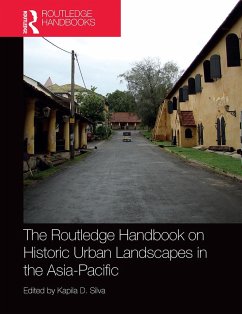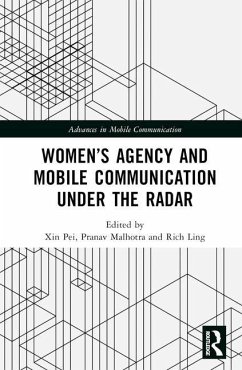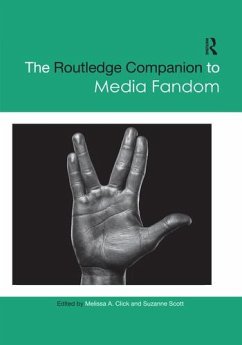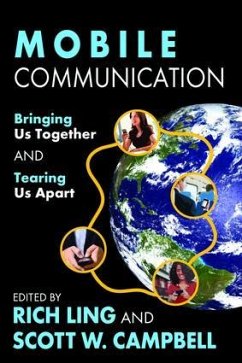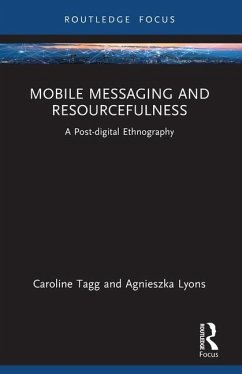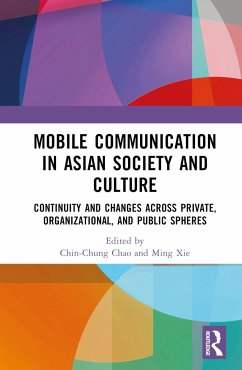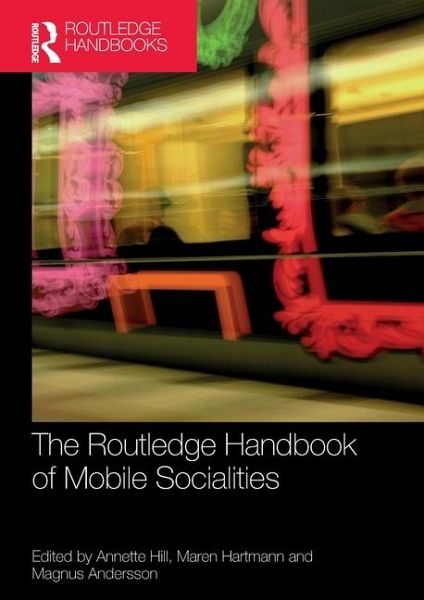
The Routledge Handbook of Mobile Socialities

PAYBACK Punkte
23 °P sammeln!
This is a state-of-the-art survey of an emerging area of study in media, communication and cultural studies, mobility studies and mobile communications.'Mobile socialities' demarcates a new area of research that captures people's various and contrary experiences of media in relation to their mobilities and socialities. The chapters in this volume are written by a range of international scholars offering a comprehensive overview and source of inspiration for a diverse range of topics on the contingent practices and finite resources of people and media on the move. The book demonstrates through ...
This is a state-of-the-art survey of an emerging area of study in media, communication and cultural studies, mobility studies and mobile communications.
'Mobile socialities' demarcates a new area of research that captures people's various and contrary experiences of media in relation to their mobilities and socialities. The chapters in this volume are written by a range of international scholars offering a comprehensive overview and source of inspiration for a diverse range of topics on the contingent practices and finite resources of people and media on the move. The book demonstrates through empirical and theoretical research how mobile socialities is a generative concept for thinking through power, identity and the contexts of media in public and mediated spaces, work and everyday life, addressing a spectrum of mobile socialities and lived politics. The research and various cases make visible previously hidden, or obscured, social practices and allow us to rethink the meanings of mobility, digital media or the home in these examples of people living within the centre and peripheries of society.
The Handbook establishes mobile socialities as a new area of academic enquiry, ideal for advanced undergraduate students and scholars across the disciplines of media, communication and cultural studies, anthropology, cultural geography and sociology.
'Mobile socialities' demarcates a new area of research that captures people's various and contrary experiences of media in relation to their mobilities and socialities. The chapters in this volume are written by a range of international scholars offering a comprehensive overview and source of inspiration for a diverse range of topics on the contingent practices and finite resources of people and media on the move. The book demonstrates through empirical and theoretical research how mobile socialities is a generative concept for thinking through power, identity and the contexts of media in public and mediated spaces, work and everyday life, addressing a spectrum of mobile socialities and lived politics. The research and various cases make visible previously hidden, or obscured, social practices and allow us to rethink the meanings of mobility, digital media or the home in these examples of people living within the centre and peripheries of society.
The Handbook establishes mobile socialities as a new area of academic enquiry, ideal for advanced undergraduate students and scholars across the disciplines of media, communication and cultural studies, anthropology, cultural geography and sociology.





